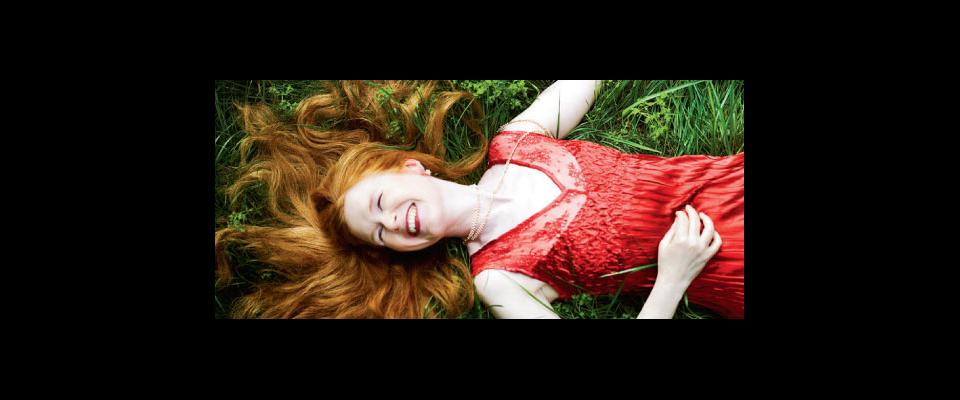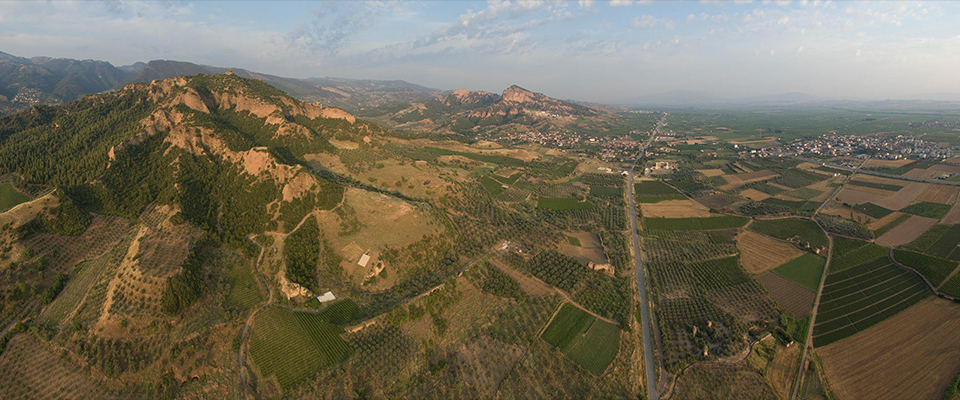Sarah Cahill’s A Sweeter Music provides catharsis for composers.
The new musical project A Sweeter Music from pianist Sarah Cahill takes its title from part of Martin Luther King’s Nobel Prize lecture: “We must see that peace represents a sweeter music, a cosmic melody, that is far superior to the discords of war.” As Cahill explains her project’s origin, “It was Frederic Rzewski’s arrangement of ‘Down by the Riverside’ that first gave me the idea. After reading news about the latest deaths in Iraq, I would sit down and play his music as a kind of catharsis.”
“I kept thinking that there needed to be more pieces like this, that can provide solace and inspiration. I know a number of composers who, like me, feel so frustrated and helpless in the face of a senseless war and need to express their response in some form.” When she asked 18 eminent “new music” composers—including Terry Riley, Yoko Ono, Frederic Rzewski, Larry Polansky, Jerome Kitzke, Pauline Oliveros, and The Residents—to contribute works about peace, they all rushed to accept.
It wasn’t just the project they liked, though. Cahill is popular with her peers in her own right. “Anytime Sarah asks me to write a piece, I say yes,” said Polansky. “I don’t care what it’s about, I’m just flattered and honored that she asked me.”
“She’s just fearless and will try anything,” added Kitzke, whose score calls for Cahill to speak, sing, and rap the keyboard lid with her knuckles. “She’s a great musician.”
Cal Performances presents the world premiere of A Sweeter Music on January 25 at Hertz Hall. The concert, augmented by a three-screen video projection by Cahill’s husband, award-winning video artist/director John Sanborn, will be preceded on January 23 by a panel discussion at Wheeler Auditorium featuring Cahill and some of the composers. Then Cahill will take A Sweeter Music on tour—first across the country and then to Europe and Asia.
Some of the pieces are overtly anti-war, such as “Dar al-Harb,” composed by 17-year-old wunderkind Preben Antonsen as a tribute to his cousin, who served in Iraq. “He was an interrogator, which means he did all the things the government says we don’t do, and he was damaged by that. The piece starts out very simple and very calm and gradually gets more and more violent, and by the end it’s just an enormous flaming mass of fury with no order at all. Like the war.”
Others are more pro-peace, such as Riley’s gentle “Be Kind to One Another Rag,” which he plays to his grandchildren at bedtime. “When Sarah called and asked me to write an anti-war piece, I said, ‘No, but I’ll write some music for peace,'” said Riley, who was arrested on the first day of the Iraq war for sitting down in the middle of the street. He was sentenced to community service, which he performed by writing an anti-war song.
Cahill and her brother, archaeologist/art historian Nicholas, grew up in an academic and artistic family in Berkeley. Their father, James Cahill, professor emeritus of History of Art at Cal, is a leading expert on Chinese art. Their mother, Dorothy Dunlap Cahill, is a well-respected art connoisseur.
“She was the first person I met when I came to Berkeley,” said Cal Performances Director Robert Cole. “I had just flown here to accept this job. After I signed the contract I stopped into a restaurant on Shattuck Avenue for a bite to eat, and there was this young woman playing Chopin—and beautifully, too. I thought, ‘What a high-class town this is!'”
Cahill grew up listening to her father’s collection of rare historical recordings of Bartok, Stravinsky, and Prokofiev, and at 8 began studying with Sharon Mann, a nationally recognized expert in Bach’s keyboard music. In addition to a love of music, Cahill’s father gave her another legacy—one of the world’s greatest collections of early, pre-Alfred E. Neuman Mad magazines, which she keeps in a safe-deposit box. One of her favorite pastimes was playing four-handed duets with her father, a talented amateur pianist in his own right. “I took the hard parts and she took the easy parts until she got better than me,” he said. “Then we reversed roles.” He realized just how good she was when she was 12. “I heard her play a Brahms intermezzo, and I thought, ‘My god! My daughter is telling me things about Brahms I never knew before!'”
Cahill skipped her senior year at Berkeley High and went directly to the San Francisco Conservatory of Music, where John Adams composed “China Gates” for her. Among her biggest fans are other pianists. “She’s an amazing technician,” said Jerry Kuderna, a leading interpreter of Milton Babbitt and Elliott Carter. “She has the technique to play anything she wants, but she is so devoted to building this repertoire of pieces that only she can play. And that’s her special gift.”
In addition to her concert career, Cahill promotes new music on her weekly two-hour radio show Then and Now on KALW-FM in San Francisco. She writes music criticism for local newspapers and music publications, and produces concerts such as the annual Garden of Memory, which showcases up to 40 musical performances at the Chapel of the Chimes mausoleum in Oakland.
Cahill says the decision to specialize in new music was a no-brainer. “When you play classical music, the audience’s attention is on how you’re playing the piece. But with new music, the emphasis is on the composition itself. I like it that way. There are so many pianists playing the same Beethoven sonata, but I get to introduce a new piece by Terry Riley.”
So can music really stop the war?
“I like to remember what Frederic Rzewski said: ‘Music probably cannot change the world. But it’s a good idea to act as though it could.'”



















